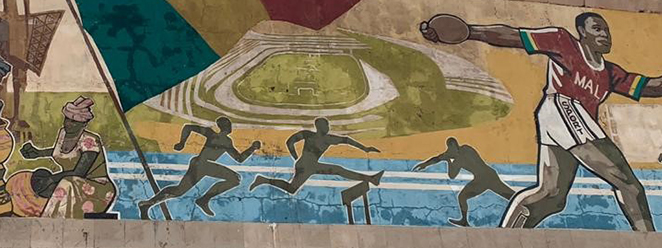

In Focus
The Role of Social Media in Mali and its relation to violent extremism: a Youth Perspective
By Elise Vermeersch, Julie Coleman, M�ryl Demuynck and Elena Dal Santo

While the influence of social media on the spread of violent extremist narratives and online radicalisation processes has recently become a focal point of research in the Preventing/Countering Violent Extremism (P/CVE) field, most of the studies thus far have focused on Western countries and have often been aimed at analysing phenomena such as homegrown and lone wolf terrorism,1 as well as online radicalisation of foreign terrorist fighters. Far less evidence-based research has explored the influence of social media on terrorism in Africa and even less regarding Mali in particular.
To address this gap, the International Centre for Counter-Terrorism (ICCT) and the United Nations Interregional Crime and Justice Research Institute (UNICRI) have drawn upon survey data from youth participants in their joint project “Mali (Dis-) Engagement and Re-Integration related to Terrorism” (MERIT).
One objective of the project is to enhance youth empowerment and engagement in Mali in order to prevent the spread of violent extremism amongst young people. As part of the monitoring and evaluation of MERIT, the youth participants were asked about their opinions on social media in general, as well as about their personal use of social media and their perceptions of the use of social media by violent extremists, in particular. Their responses inform this paper’s analysis of the implications of social media use vis-à-vis violent extremism in Mali.

While the influence of social media on the spread of violent extremist narratives and online radicalisation processes has recently become a focal point of research in the Preventing/Countering Violent Extremism (P/CVE) field, most of the studies thus far have focused on Western countries and have often been aimed at analysing phenomena such as homegrown and lone wolf terrorism,1 as well as online radicalisation of foreign terrorist fighters. Far less evidence-based research has explored the influence of social media on terrorism in Africa and even less regarding Mali in particular.
To address this gap, the International Centre for Counter-Terrorism (ICCT) and the United Nations Interregional Crime and Justice Research Institute (UNICRI) have drawn upon survey data from youth participants in their joint project “Mali (Dis-) Engagement and Re-Integration related to Terrorism” (MERIT).
One objective of the project is to enhance youth empowerment and engagement in Mali in order to prevent the spread of violent extremism amongst young people. As part of the monitoring and evaluation of MERIT, the youth participants were asked about their opinions on social media in general, as well as about their personal use of social media and their perceptions of the use of social media by violent extremists, in particular. Their responses inform this paper’s analysis of the implications of social media use vis-à-vis violent extremism in Mali.



